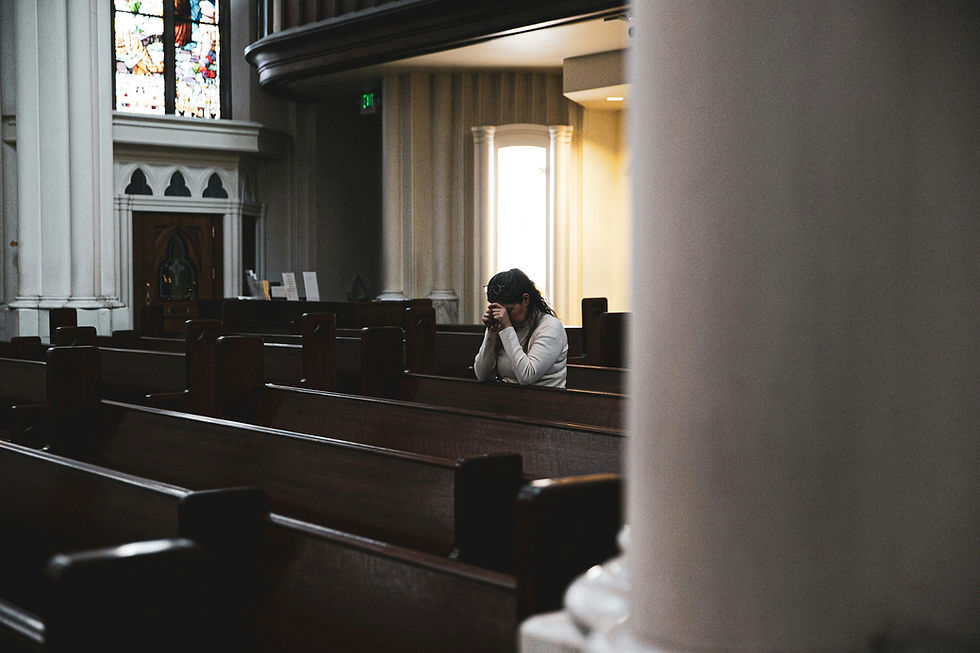Twelve Disciples?
- Ask Pastor Adrienne

- Mar 25, 2020
- 3 min read
Updated: Dec 14, 2023

Q:
Dear Pastor,
According to the movie, The Passion of the Christ. Judas committed suicide. How come we still talk about the twelve disciples? We ended up with eleven, right?
A:
I’m so glad you were able to see that movie. (In my opinion, it is one of the most impacting films ever created.)
No, we weren’t left with only eleven disciples. Jesus intended for there to be twelve men in his cabinet. The writer of the book of Acts (who some say was Luke), details the account of Judas’ replacement. But before we get into that, I want to discuss why God wanted twelve disciples.
The number twelve is used 187 times in scripture. There are twelve tribes of Israel, twelve spies sent into the promised-land and twelve pearly gates in our heavenly city. They are guarded by twelve angels. Jesus was twelve when he uttered his first words recorded in the Bible. The wise King Solomon had twelve administrators in his kingdom: twelve is the number of governmental power. Further, we can learn from God’s numbers by using them as triggers. When I see a number twelve in the Bible, I immediately know that God is saying, “government” or “authority” or “order” because of its consistent use in that way. Make sense?
Paying attention to numbers in the Bible isn’t to say that we become consumed with numerology; a horoscope-like predictor of something. (Neither numerology or “horrorscopes” as I call them, are Christian. They are from the fringe-darkness of divination where people use things other than God to predict futures.) God knows the future and asks us to pray and seek him regarding these matters. There is no need to consult alternative theories.
So Jesus wanted his government, his Christian corporation, if you will, to be made up of twelve men. These men, after all, would impact and change the world completely. They were commissioned personally, as are we, to spread the Good News of Jesus Christ to every person. They did this. Now we have a Christian church on almost every street corner in America. Even the finest examples of architecture are illustrated through Europe’s colossal cathedrals. Yes, Jesus’ government, called the Kingdom of God, was set up on the earth as planned. It still rests on the shoulders of the Savior, according to the prophet Isaiah. (Matthew 16:18.)
Now to answer your question, I’ll set the stage: Judas hanged himself when he saw that Christ was condemned to be crucified (Matthew 27.) Judas’ demonic possession, now having completed its work (to betray Christ) left this sinful disciple with the conviction of what he had done. He came to himself at last and promptly ended his life. A few hours later, Jesus was crucified and buried. The disciples were plunged into terrified confusion and were scattered. Jesus rose up from death, walked around the towns, cities and countryside for forty days in what are called “convincing proofs” of his resurrection, then lifted off and returned to heaven. Seventy days after that, the disciples were gathered together again in Jerusalem where they elected a Judas-replacement. The account, detailed at the end of Acts 1, tells us that two men were put forth as candidates: Joseph and Matthias. The remaining eleven prayed over the decision and voted. Matthias was elected Judas’ replacement and became one of the twelve. Christ’s Kingdom-order was restored.
A final note: Matthias was a brave man who is rarely mentioned in Christian circles. Imagine his perspective on his election: your boss is condemned by the governing authorities and suffers capital punishment. Anyone affiliated with him is despised and hunted down also. You allow yourself to be elected an officer of the organization anyway, knowing it will likely mean your death. You accept your job description—as a martyr. Matthias had what it took to be one of the twelve. He had courage. And a sacrificial love for the Savior and the message.
Do you have a question or comment for Pastor Adrienne? Email your inquiries to: info@adriennewgreene.com. For more information & contact for bookings, please also explore: www.askpastoradrienne.com.




Comments